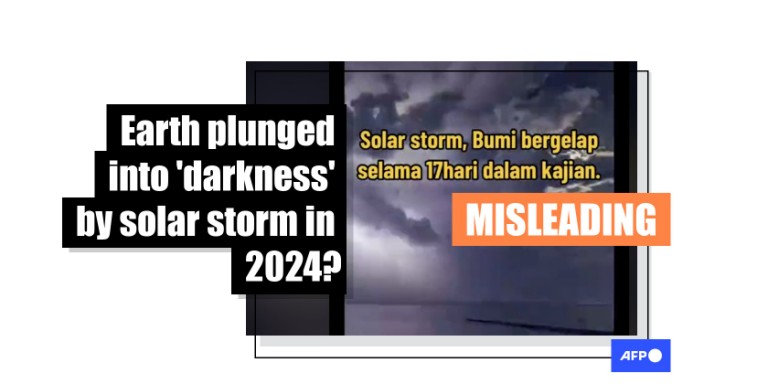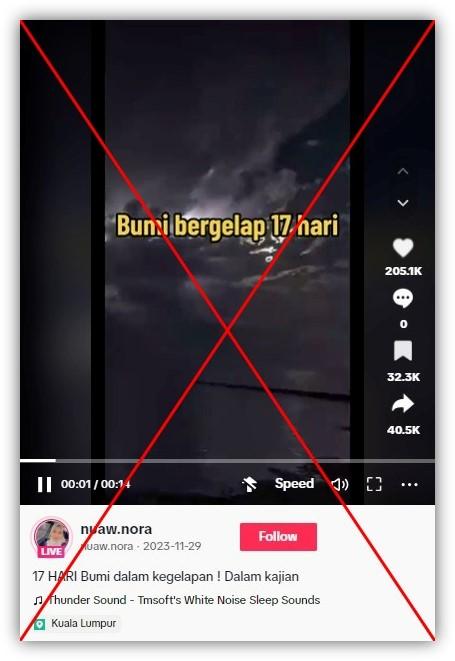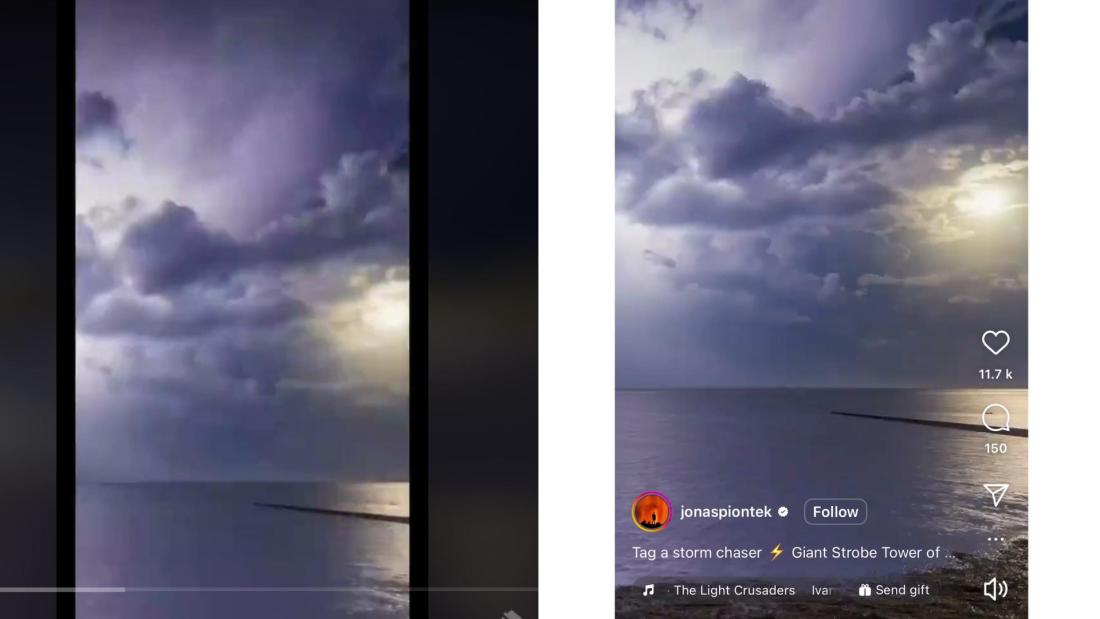
Solar storms not set to 'plunge Earth into consecutive days of darkness' in 2024: experts
- This article is more than two years old.
- Published on February 20, 2024 at 03:29
- Updated on February 20, 2024 at 13:18
- 4 min read
- By Najmi Mamat, AFP Malaysia
"Solar storm, Earth will be dark for 17 days, studies say," reads part of the overlaid Malay-language text on a TikTok video viewed more than 8.5 million times since being shared on November 29, 2023.
Solar storms are caused by violent eruptions on the Sun's surface that shoot out electromagnetic rays. These can cause powerful geomagnetic storms that affect the Earth's magnetic field, disrupting telecommunications and electricity grids (archived link).
The 14-second video shows a stormy sky and additional overlaid text urges viewers to prepare physically and mentally. It specifically advises having a hand-crank flashlight, candles and matches.

The video has been viewed more than 36,000 times after it was also shared alongside a similar claim on TikTok here, here and here.
While a once-in-a-century solar storm could cause surges in electricity power grids that lead to long blackouts, experts told AFP it was highly unlikely for a storm to blanket the Earth in darkness for 17 days (archived link).
Unrelated footage
A reverse image search on Yandex led to a similar clip of a lightning storm posted on Instagram here on November 21, 2020, by an account that has posted several videos of similar storms (archived link).
It is captioned, "Tag a storm chaser. Giant Strobe Tower of the Adria. The best storm I have seen all year in all its glory."
Below is a screenshot comparison of the footage used in the false post (left) and the video shared on Instagram in 2020 (right):

The footage was also uploaded in high definition on the user's YouTube channel here on September 5, 2020 (archived link).
According to the video's description, the clip shows a "massive supercell storm... above the Adriatic Waters around Trieste, Italy."
'Not possible'
Dr Roslan Umar, director of Universiti Sultan Zainal Abidin's East Coastal Environment Research Institute in Malaysia, told AFP the event described in the posts was not scientifically possible (archived link).
"It is not possible for the Earth to experience darkness for 17 days, as is mentioned in the viral claims," he said.
The misleading claim circulated after the US National Oceanic and Atmospheric Administration (NOAA) predicted the Sun would reach its "solar maximum" -- the peak of its current activity cycle -- between January and October 2024 (archived link).
"During this time, there will be a spike in solar and space weather activity that could impact Earth (e.g. interruptions in GPS and communication signals) as well as satellites and even astronauts in space; however, there is no evidence that shows it would cause long-term catastrophic effects on Earth," a representative from NASA's Goddard Space Flight Center told AFP on February 17, 2024 (archived link).
Dr Nurul Shazana Abdul Hamid, from Universiti Kebangsaan Malaysia’s Department of Applied Physics, said although the Sun was experiencing the peak of its current cycle, when solar storm activity is more pronounced, there was no precedent for the event predicted in the posts (archived link).
"There has never been an instance of prolonged darkness", she said.
Sangeetha Abdu Jyothi, an assistant professor at the University of California, Irvine, told AFP that countries in higher latitudes were more vulnerable to outages than those closer to the equator like Malaysia (archived link).
"The worst-case solar storms can potentially affect power grids, satellite communication, and submarine cables," she said.
Nurul Shazana also said that while solar storms are a natural part of the solar cycle, they can disrupt technology and infrastructure.
But "significant and widespread damage is rare", she said.
Copyright © AFP 2017-2026. Any commercial use of this content requires a subscription. Click here to find out more.
Is there content that you would like AFP to fact-check? Get in touch.
Contact us
